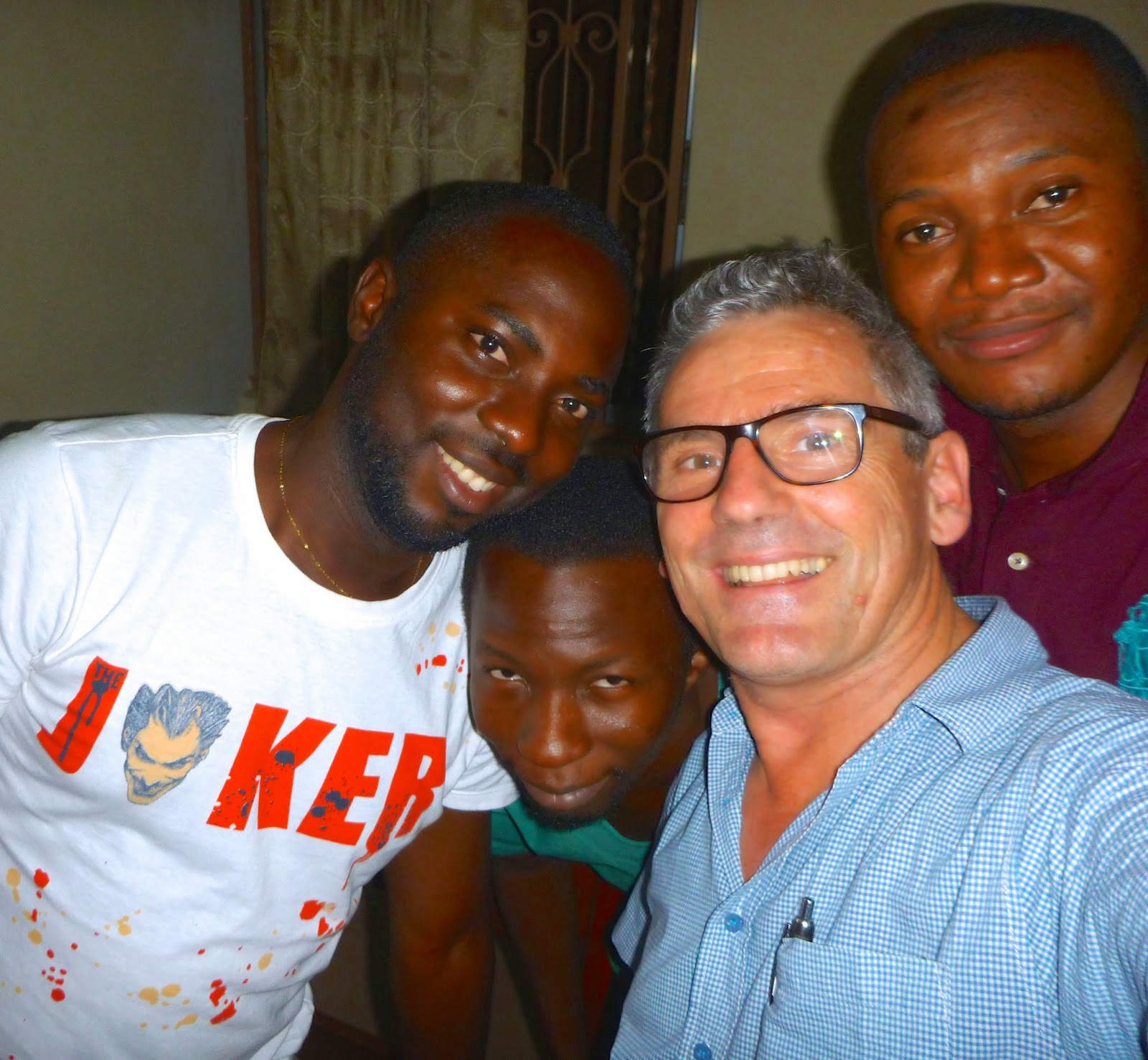 |
| Motta view showing new Church dome |
My return flights were through Addis Ababa and so I had requested and been granted permission to break my return in Addis and have a few days to visit my friends in Bahar Dar and Motta. I arrived late on thursday evening and stayed in a quite upmarket Hotel, and I had two beers and chocolate cake for desert. In the morning I flew north to Bahar Dar on the shores of Lake Tana, checked in to the Ethiostar Hotel - about $20 a night - and went for a wander around the nearby shops. The thing that was great to see were women wearing something other than the muslim coverings - it was not just the joy of seeing female curves again but the realisation that here women had so much more freedom, they were free to express themselves in their attire and hair-do's , in their choice of who they walked down the street with and with make -up. There was just a sense of being out from under the oppressive domination of religion.
The next day I caught the crowded bus to Motta. The fare is 60 birr, about $3. Its a very slow 120km ride on a horribly rough and muddy unsealed road through wonderfully scenic terrain, the most noticeable feature being the throngs of people walking along it. Its a rainy season so the fields were all green and luxuriant in their acreages of Teff and corn, in one place there were sunflowers and everywhere the wonderful little donkeys. Ethiopia felt quite wonderful after Jahun, at least as poverty stricken but there just seemed to be a sense of freedom and almost of joy in the air.
I had warned Shewaye, the schoolgirl who had been my cleaner and helper in Motta, that I would probably be arriving on September 6th - and I did - but that was the western Calendar date and she was expecting me on the 6th according to the ethiopian calendar - which was still several days away! Consequently there was no-one to greet me when I got off the bus - so I walked through the village to her house and surprised everyone when i stepped up to the door of their two room mud walled and bare earth floored apartment! But they quickly got the Coffee ceremony going and we caught up on all the news and then I checked in to the local Hotel, called the Wubet, the place I visited innumerable times when working in Motta, for beer and lunches of egg sandwiches or a "burger" of a very rudimentary kind. To my surprise, foreigners are charged double for a room, 500 birr for one with a hot shower. It was a reasonably comfortable bed but there were lots of mosquitoes.
The next day I visited the hospital where I had worked for five months in 2011 and 2012. Ethiopian trained doctors had now taken over the role of Obstetricians and so there was no longer a need for "Farenji" doctors. I met Dr Tenaw who I realised was a much more useful person to have there than I ever was because he had been trained in Emergency Surgery. So he could do bowel resections and set fractures and do various other surgical emergency procedures as well as deliver babies by caesarean when needed. The Maternity ward was full and not as clean as we used to keep it or as organised, but it was functioning and according to the stats on the wall, achieving excellent results.
It rained on and off during the day, so the streets became muddy quagmires. I got my haircut for about 40 cents and then later in the afternoon I took a walk with Shewaye to St Georges church, a large church near the centre of town that somehow I had neglected to visit during my time there. Its the typical circular building in the centre of a few acres of ancient trees. At one edge of the enclosure a new building was under construction and inside I noticed a tall object hidden under sheets and cloth. I asked the armed guard if I could go and look at it, and he let me, explaining that underneath the sheets was the sacred object that only select Priests are permitted to view on certain days of the year, an object that is normally concealed in the innermost chamber at the centre of the circular church. It was out here because a new one had recently been installed and this was the old one, now over 300 years old. He removed the coverings and we beheld this amazing ancient relic with its various shelves and partitions and folding doors. Inside it would have sat ancient Bibles and manuscripts. It was a sort of "Indiana Jones" moment for me, to see this once revered and holy of holiest objects.
 |
| St Georges Church, Motta |
The following morning I got back on the bus and returned to Bahar Dar after tearful good byes from Shewaye and her family, and returned to the Ethiostar. From there I returned to Addis and caught the night flight to Hong Kong and on to Sydney, arriving at 6am, sleep deprived and jet lagged. I had further debriefings in the Sydney MSF Offices and then had a few days to catch up with family, see my Doctor and an Eye specialist , and repack my bags for Fiji, and Sapphire Breeze.










